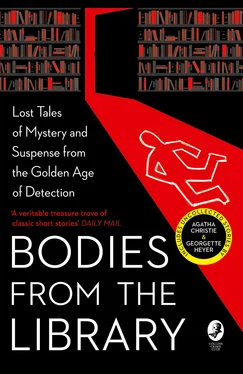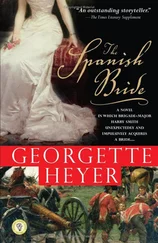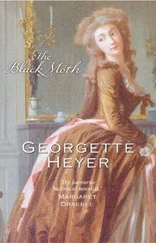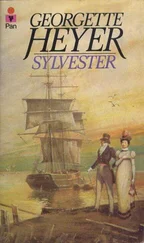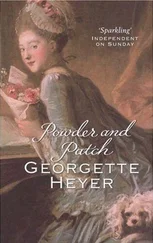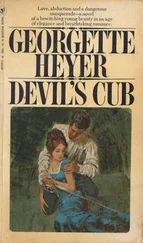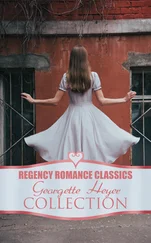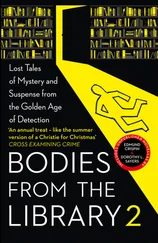By now people began to gather. Giggs, the gardener, whose cottage was across the stable yard, appeared and Cuthbert Mireling arrived at the front door, having heard the screams from his home. A doctor was sent for and so was I, and between us we examined Miss Lucia, who was quite dead, and managed to calm her sister a little.
It was not until the evening, however, that I could get a statement from her. I had been over the ground by then and seen that the murder had happened about 200 yards from the terrace and that it was possible to reach the shrubbery from the house without being visible from where Miss Agatha had sat. Or, as I thought, to reach the house from the shrubbery for that matter.
The first thing that Miss Agatha said was that her nephew must be arrested at once.
‘I saw him do it!’ she kept repeating.
I pointed out that it was 200 yards away and asked how she could be sure.
‘I watched him. He was wearing his deerstalker hat and that cape of his.’
‘But did you see his face?’
She would not or could not give a clear answer to that question. She knew it was Richard. She could see him quite clearly. The cape … the hat … it was Richard. I was to arrest him; not leave him in the house with her. Question her as I might, I could get no more from her.
Then I tackled the nephew. Before lunch he had been in the local pub playing darts with his two friends and Giggs, the gardener. He had left his aunt on the terrace and gone upstairs to sleep. He had heard the screams and come down. He could not account for Miss Agatha’s accusations.
When I asked him about the Inverness cape he said he had found a stuffy little outfitter’s shop in London which had some old stock of things long out of fashion—spats, fancy waistcoats, Norfolk suits and these capes. He gave me the name and address. He said that he had thought it would be amusing to wear something so dated. Yes, his friends knew where he had purchased it. I asked him to go and fetch it, and he did so, but took a long time over it.
‘Katie had it,’ he explained. (Katie was the servant.) ‘She was mending a tear in it.’
There was no sign of a stain or anything unusual about the thing.
I sent for Katie and found out, as I half-expected by then, that she had taken the cape to her room after lunch that day to repair it and that it had actually been in her hands while the murder was committed.
It was easy to understand which way the case was developing now, and when I went to the little shop and found that they had sold two of these Inverness capes in the last few months I could see daylight. The shopkeeper could not help me much over the two purchasers. He remembered the first fairly well and his description fitted Richard Luckery, but about the second he was uncertain. He remembered it was a young man, but nothing much more except that he had seemed in a hurry.
Next, of course, I cross-examined the two friends, but neither of them had much of an alibi. Cuthbert Mireling had been at home reading, he said, in a deck-chair on the lawn when he had heard screams coming from the old ladies’ house. He had gone across to see what was the matter and whether he could be of any help. Gilly Ponstock had remained in his room at the inn asleep. He knew nothing about the murder till he came down to tea at half-past four and was told by the innkeeper. The gardener had been alone in his cottage.
It was a puzzler. Someone had bought one of these capes with which to impersonate Richard Luckery, had put it on in the shrubbery, murdered the old lady and made off. Giggs and Mireling had some sort of motive because each had fair-sized legacies, Giggs as an old employee, Mireling as a son of old friends. Either could have done it, but there was not a shred of real evidence against them.
My wife said that case would be the death of me. I couldn’t sleep for worrying over it. I’d tried all the ordinary things that should have provided clues—fingerprints, footprints, the weapon used, but none of them gave me an inkling. If I ever commit murder, I said, it will be like this, in the open where everyone can see me do it. Then I know I’ll never be found out.
Then suddenly I had an idea. I searched Richard Luckery’s room, then came downstairs and arrested him. He was charged, tried and, I’m glad to say, in due course hanged.
The explanation? Well, he had found what he thought was a very clever way of committing murder. A double bluff. He decided to impersonate someone impersonating him. Perhaps it was by chance that he came on that old stock of Edwardian clothes, or perhaps he was actually looking for something of the sort. He chose that Inverness cape as a garment easily distinguishable, bought another with which to impersonate himself, made a habit of wearing the first one, then waited his moment. He chose a Saturday afternoon because he knew that Miss Lucia would be gardening then, asked Katie to mend his first cape, went down to the shrubbery where he had hidden the second, put it on, murdered his aunt and returned to the house, which he entered while the servant was on the terrace. He had a perfect witness in Miss Agatha, who would swear it was him, because of the cape, and a perfect alibi in that his cape would be in Katie’s room. He knew I should soon find out about the purchase of the second cape by someone who did not resemble the purchaser of the first—some simple disguise, I guessed. The more Agatha swore it was him, the more sympathy he would gain for being impersonated.
But, of course, he made his one mistake. They all do, thank heavens, or I don’t know what would become of detectives. He forgot to plan the disposal of the second cape. I found it between the mattresses on his bed.
Rupert Croft-Cooke, who wrote detective fiction under the pen name of Leo Bruce, was born in 1903. He was brought up in south-east England, an aesthete in a family of athletes, and attended Tonbridge School and what is now known as Wrekin College in Shropshire, where he did well both academically and at the game of darts, at which he excelled.
Croft-Cooke published his first work, a slim booklet of verse entitled Clouds of Gold , at the age of 18. Aged 19, after a brief period working as a private tutor, he decided to go in search of what he would later describe as ‘adventure, romance and excitement’. He secured a teaching post in Argentina and travelled throughout South America, taking in Brazil and even the Falkland Islands. After two years he returned to England, and began working as a freelance journalist and writer, as well as broadcasting on 2LO, one of the first radio stations in Britain, which would go on to become part of the BBC.
In 1940, Croft-Cooke enlisted in the Intelligence Corps, serving first in Madagascar and later in India. On returning to civilian life, he settled in Ticehurst, Sussex, where he continued to write. In 1953, as part of a ‘war on vice’—defined as encompassing prostitution and homosexuality—initiated by the then Commissioner of the Metropolitan Police, Croft-Cooke and his Indian companion and secretary were charged with indecency and convicted. After serving his sentence, he sold up and moved to Tangier, where he spent the next fifteen years writing and playing host to visiting writers including Noël Coward.
Over a career lasting more than fifty years, Rupert Croft-Cooke was amazingly prolific. He authored nearly thirty volumes of autobiography, including The World is Young (1937) on his experiences in South America, as well as collections of verse, memoirs of his extensive travels and biographies of Lord Alfred Douglas—Oscar Wilde’s Bosie—and of the entertainers Charles ‘Tom Thumb’ Stratton and Colonel ‘Buffalo Bill’ Cody. Croft-Cooke also wrote widely on subjects that interested him, including his beloved darts and the circus, as well as the importance of freedom of the press and the problems caused by ‘petty’ regulation. After his conviction and subsequent imprisonment, he argued for greater tolerance of homosexuality and in support of improvements to the penal system. His writing was highly regarded by critics up to the early 1950s, but after his conviction, reviews tended to be more negative and even favourable ones were marred by obscurely worded but plainly homophobic allusions.
Читать дальше
